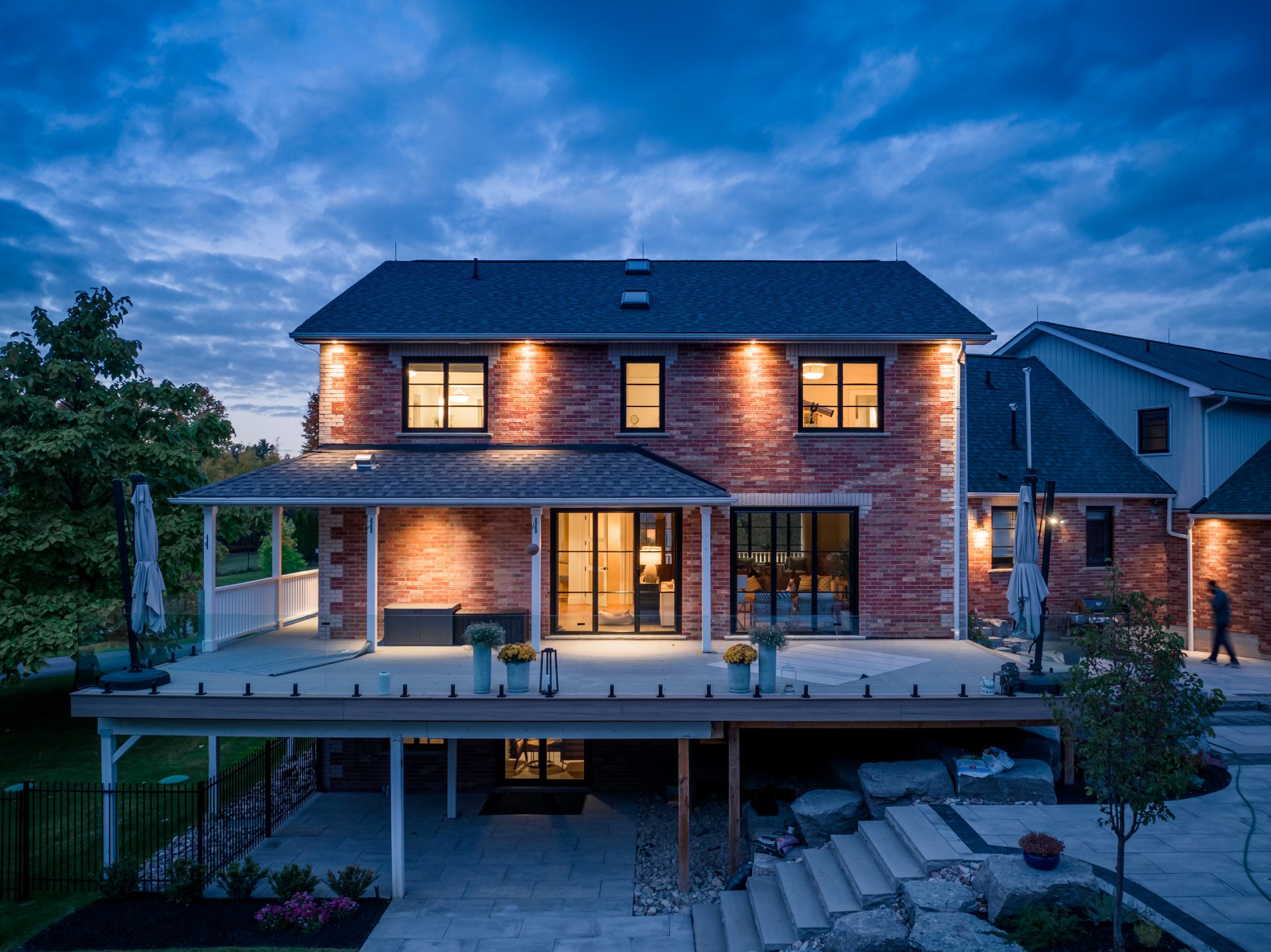
Window Replacement & Repair
Best Solutions for Water Leaking into Basement After Heavy Rain
Basement water leaks are much more common than you'd expect. But that doesn't mean it's normal or safe. Basement water seepage is more than a nuisance. It can cause serious damage to your home's foundation, compromise indoor air quality, and lead to long-term health risks.
In this article, we'll walk you through the most common reasons for water leaking into basement after heavy rain, what to do if this happens to you, and how to protect your home against future water damage.
Key Takeaways
- Water intrusion starts with identifying the source. Leaks can be caused by hydrostatic pressure, poor drainage, window well issues, and more. A thorough inspection is the first step to finding a lasting solution.
- Immediate action prevents long-term damage. Remove water quickly, seal any cracks, repair damaged areas, and use a dehumidifier to reduce excess moisture. These measures can prevent structural decay, mold growth, and costly repairs down the road.
- It's important to take preventative measures as well, such as grading your yard properly, maintaining gutters, installing sump pumps, and upgrading drainage systems.
- Old basement windows are a major culprit. Poorly insulated or damaged windows and window wells often allow water in, so it's best to replace them with high-performance alternatives.
Why Is There Water in Your Basement After Heavy Rain?

Without a doubt, basements tend to get wet. But this should be an exception, not the rule. Therefore, the first step in addressing a water leak in the basement is identifying the root issue: what caused the leaking water in the first place? It could be hydrostatic pressure, foundation cracks, clogged gutters, poorly insulated windows, or even window well drainage issues. Each of these can compromise the integrity of your basement walls and lead to water intrusion.
In the following sections, we'll discuss all of these potential causes in detail.
Hydrostatic Pressure
Hydrostatic pressure refers to the pressure exerted by the weight of water in the soil against basement walls. In other words, when it rains, the soil that surrounds your basement becomes saturated with water. Because of this, the pressure on your basement walls increases.
If the interior and exterior walls have weak spots, that pressure can force water to get into those openings and leak into your basement. The heavier the rain, the more severe the pressure.
Expansive Soil
When the soil surrounding your basement walls is saturated with rainwater, it starts to expand, exerting pressure against the walls. When the soil dries out, it contracts, reaching its original state.
This cycle of expansion and contraction, especially during the rainy season, can put stress on the basement walls and lead to cracks which water can seep through. It can also worsen existing cracks, further exacerbating the problem.
Clogged Gutters and Downspouts
Clogged gutters and downspouts are another common cause of basement water leaks. When gutters and downspouts are clogged with debris, water overflow can occur. This overflow can lead to water pooling around the foundation and eventually seeping into the basement.
Therefore, maintaining gutters and downspouts regularly prevents water overflow and basement flooding.
Old Windows and Window Well Drainage Issues
If you notice leaks around your windows, they are likely the main culprit for having rainwater in your basement. If your windows are old, of low quality, or improperly installed, it is almost impossible to avoid water leaks through them.
If your basement windows are below ground level, there may also be an issue with the window well, which is the opening around the window. Window wells should have a proper drainage system that prevents water from accumulating in them and leaking into your basement. If the window well is damaged or if the drainage system is clogged, and if, on top of that, your windows are old or of low quality, water can easily leak into your basement.
Poor Lawn Grading
As you probably already know, your lawn should have a gentle slope, which should direct water away from the house. If your house has poor lawn grading, water will accumulate near the structure and eventually seep in through tiny cracks, causing severe water leaks.
How Do You Fix a Leaking Basement After Heavy Rain?
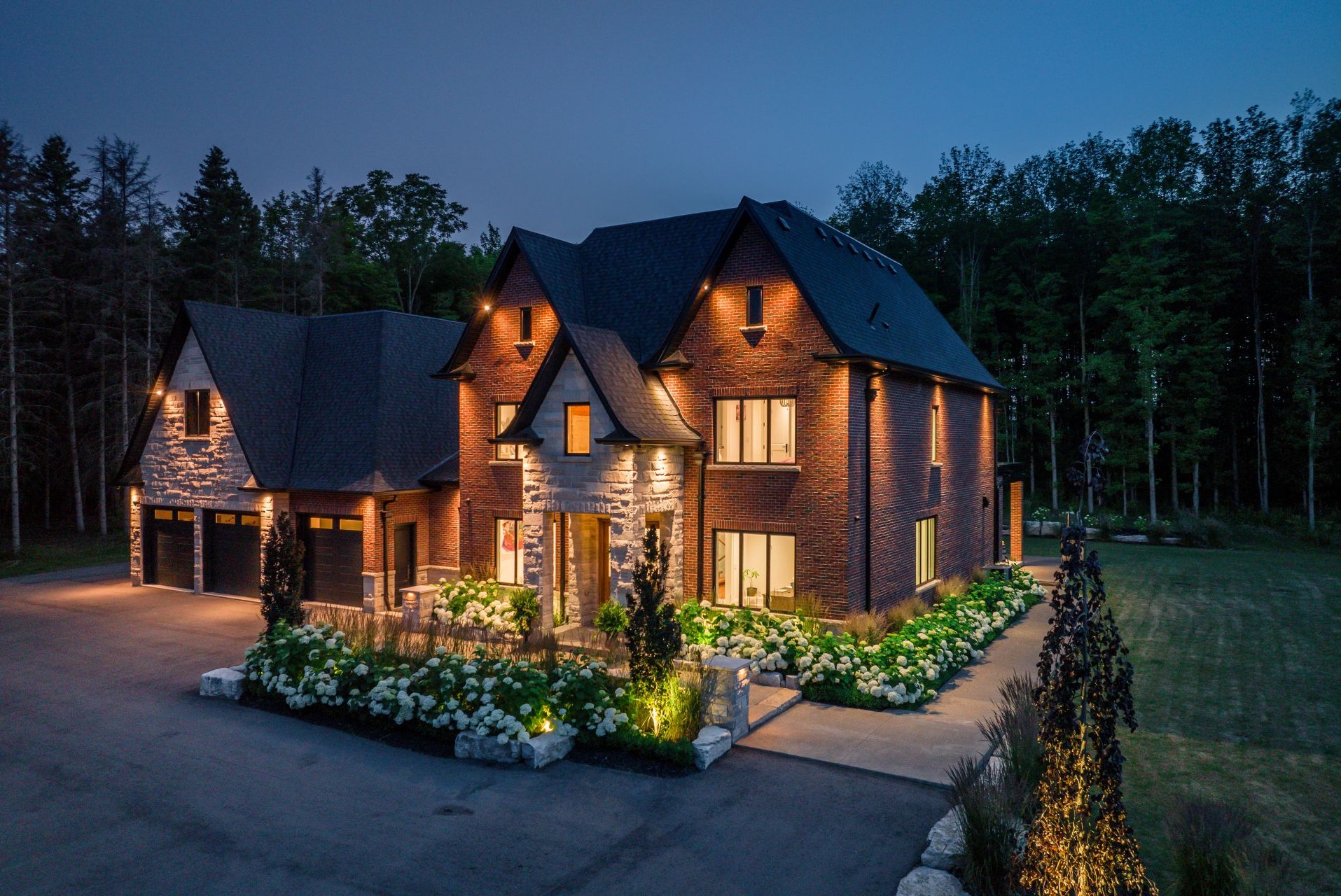
If you’ve noticed water leaking into your basement, it’s important to act fast. Basement leaks might seem like a minor inconvenience, but they can quickly lead to serious structural damage, health risks, and mold growth caused by excess water.
Here’s what you should do right away to stop the leak and prevent further damage.
Find Where the Water Is Coming From
Start by identifying exactly where the water is getting in. Check for visible cracks in the walls or foundation, poorly sealed windows, clogged gutters, or misdirected downspouts. Window wells and exterior drainage systems can also be culprits.
Get Rid of The Water
Once you’ve found the source, focus on removing any water that’s already made its way in. If there’s just a small amount, a wet-dry vacuum can do the trick. For more serious flooding, you might need a commercial-grade pump to get the water out quickly. Then, you can use a dehumidifier that will remove any excess humidity and dry the walls.
Don’t delay this process! Standing water creates a perfect environment for mold to grow and can cause lasting damage to your basement. Therefore, it's important to maintain humidity levels within the recommended range to prevent mold growth.
Seal Up Cracks and Leaks or Call a Professional
Now it’s time to tackle the repairs. Fix water leaking cracks in the basement walls by applying a good-quality sealant—epoxy sealers work especially well for masonry foundation walls. This will stop more water from seeping through. After sealing cracks, you can also apply a new layer of wall coating.
However, the best solution to this problem is to contact a professional basement waterproofing company or use foundation repair services to avoid further issues down the road. Experts can thoroughly check your basement walls, window wells, and landscape to find even the tiniest problems that could cause water to leak into your basement. Indeed, a thorough inspection is an investment, but it will help preserve your home's structural integrity.
How To Stop Rainwater from Entering the Basement?
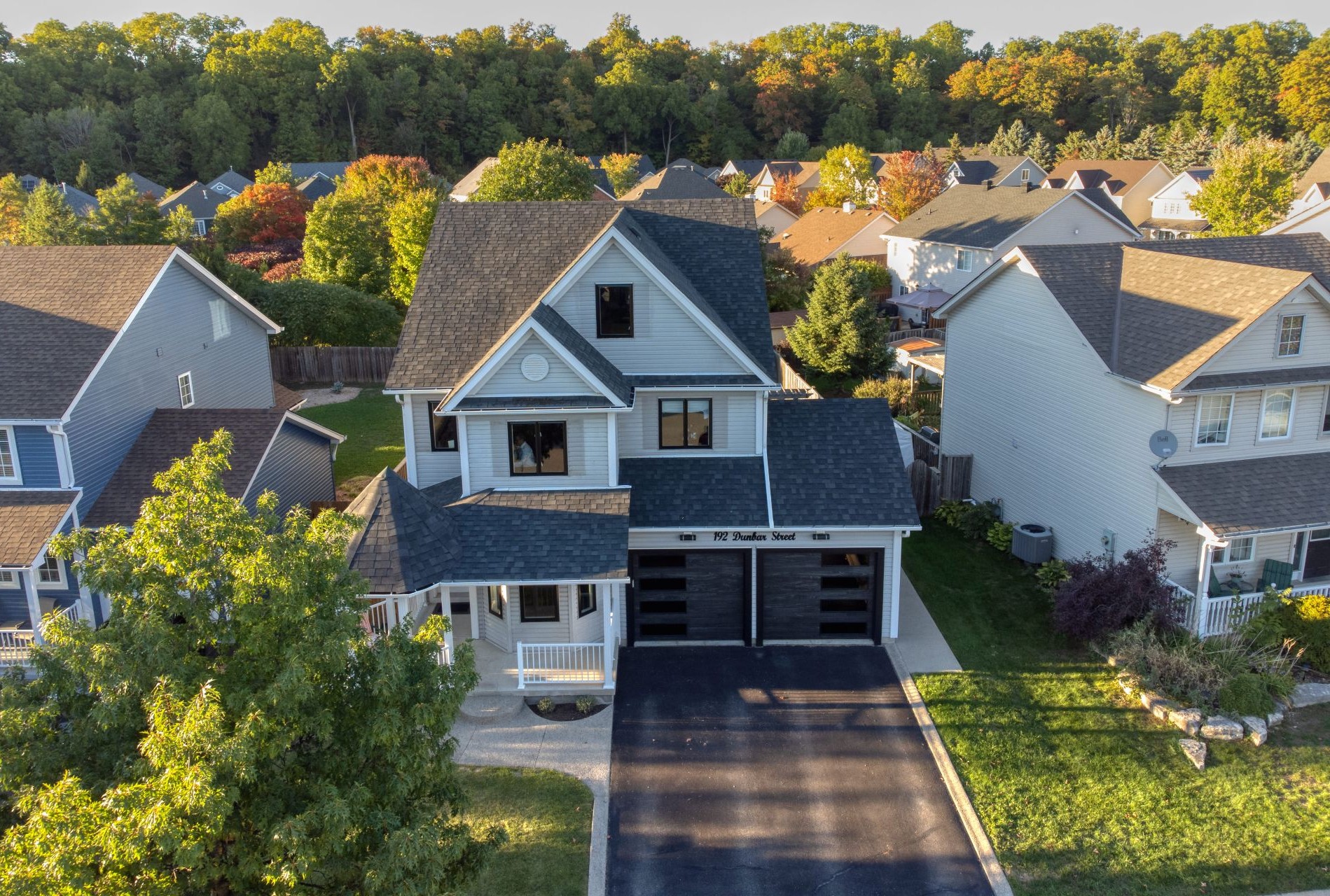
Keeping your basement dry doesn’t stop after dealing with a leak. You’ll want to take some smart, preventative steps to make sure it doesn’t happen again. In the following sections, you'll discover a few ways to stop water from getting into your basement in the first place.
Check the Grading Around Your Foundation
Walk around your home and take a look at how the ground surrounding your house slopes near the foundation. Ideally, the soil should slope away from your house at a rate of about 1 inch per foot. In the case of poor lawn grading, water can pool near your foundation and eventually seep inside.
Furthermore, it's generally recommended to avoid having plants close to the walls. When you water them, water gets into the soil, which can also cause leaks over time. You can also install various landscape features like swales or French drains.
Maintain Gutters and Downspouts
Your gutters are your first line of defense against rainwater getting into your basement, as they collect rainwater and direct it away from the house. Clogged or damaged gutters can cause water to overflow and run straight down into your foundation. Therefore, clean downspouts and gutters regularly, at least twice a year or more often if you have overhanging trees. You can also install gutter guards to keep debris out.
Don’t forget to inspect your downspouts too. If they’re not carrying water far enough away, consider adding downspout extenders to direct the water where it won’t cause problems. They should extend at least four feet away from your house.
Install Window Well Covers and Check the Drainage System
Basement windows are a common place for water to sneak in, especially if your window wells collect water when it rains.
So, first things first, install a clear window well cover, as it will keep out rain, snow, and debris while still letting in natural light. Take a few minutes once a year to clean out the window wells and make sure the covers are secure. It’s a small step that can make a big difference.
However, even with a good window well cover, water may still accumulate during heavy rainfall, which is why it's important to have a proper window well drainage system in place. Therefore, it's recommended to inspect the drainage system a few times a year and, if you notice any issues, address them as soon as possible.
And don't forget to clean your window wells regularly to remove any debris buildup.
Replace Your Old Basement Windows
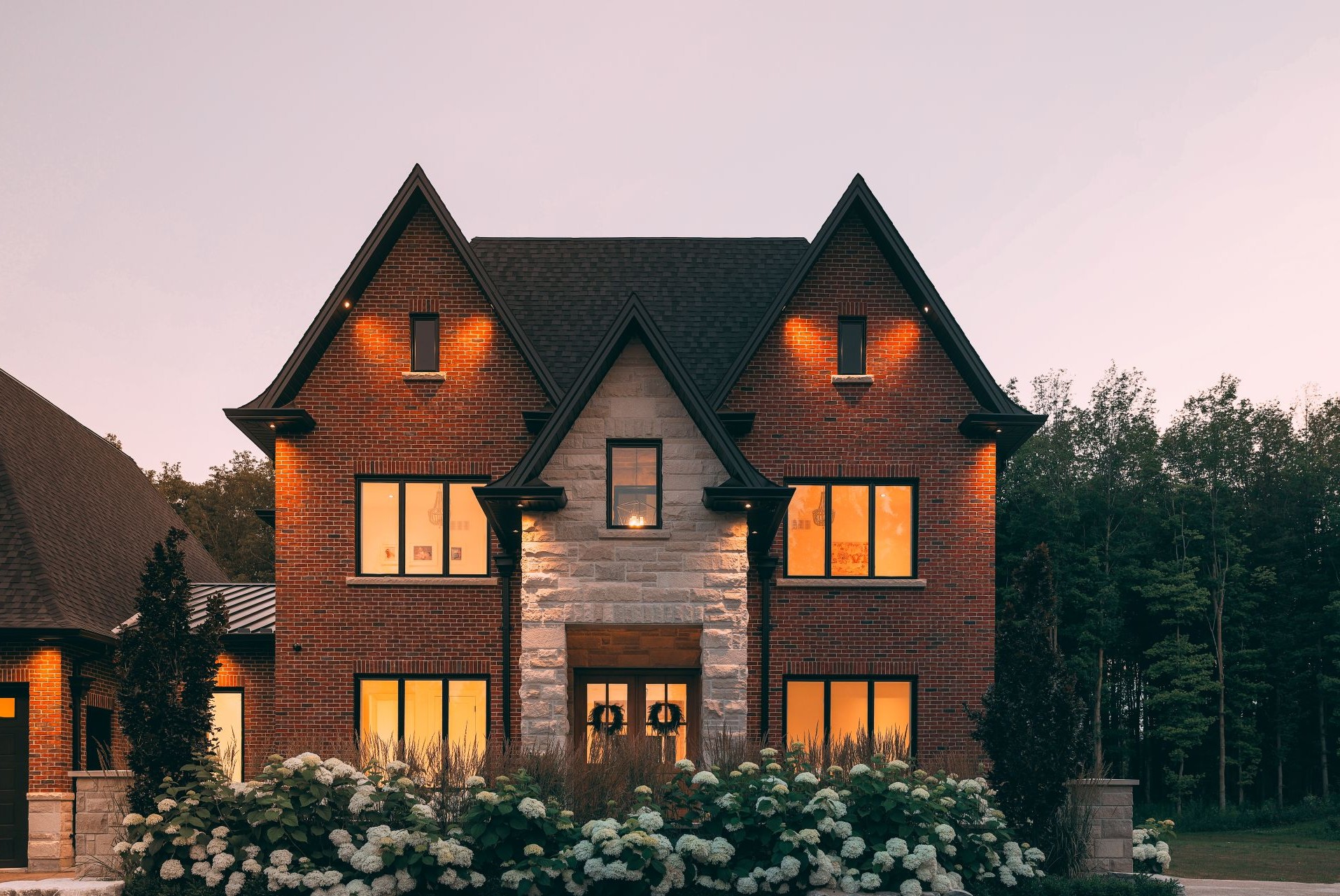
Old, poorly sealed basement windows can be a major source of water leakage. If you’ve noticed condensation between panes, cracked glass, or rotting frames, it might be time to replace them.
Upgrading to energy-efficient, well-sealed windows can prevent moisture intrusion and give your basement a tighter, cleaner look. Plus, new windows add natural light and can improve ventilation and safety.
Install a Sump Pump
If you don’t already have a sump pump, it’s worth considering, especially if your basement is prone to flooding. A sump pump sits in a pit at the lowest point in your basement. When water collects, it kicks on automatically and pumps it safely outside.
If you already have a sump pump, test it regularly to make sure it’s working properly. It could be the key to keeping your basement dry during heavy rains or snowmelt.
Consider a Drain Tile System
A drain tile system works quietly behind the scenes to keep water from building up around your foundation. These buried drainage pipes help move groundwater away from your home before it ever has a chance to get inside.
Installing an exterior French drain is another great option for managing surface water. Just be sure to inspect and maintain your interior drainage systems periodically so they keep working effectively.
Add an Interior Waterproofing System
An interior waterproofing system can offer strong protection for homes with ongoing water issues. This involves sealing basement floors and walls with waterproof coatings or membranes that keep moisture out.
These systems are especially helpful in older homes or basements with porous materials. When combined with other solutions like sump pumps or drain tiles, interior waterproofing gives you a solid defense against future leaks.
How Serious Is Water Seepage in a Basement?
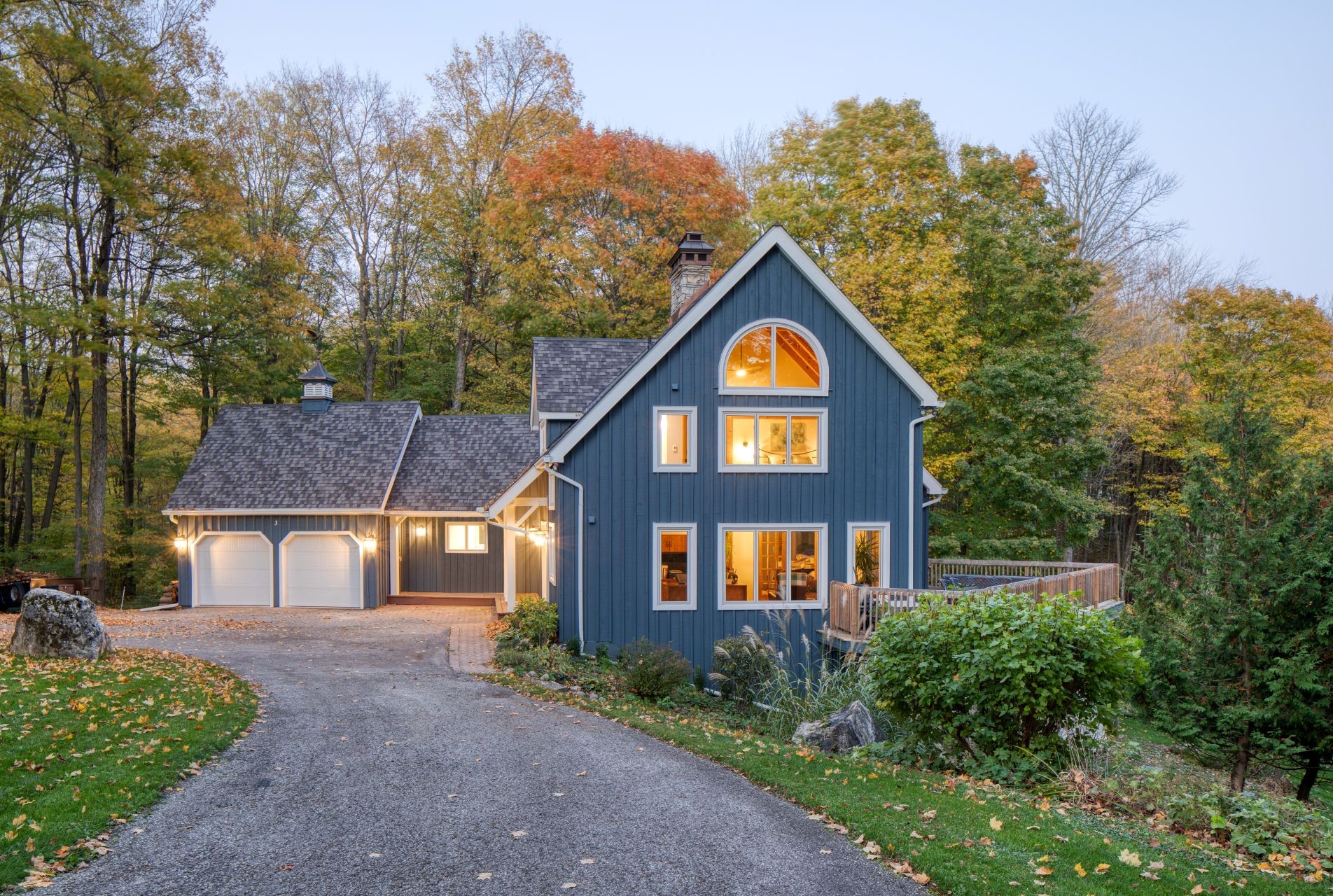
Water seepage in a basement is a serious issue that needs to be addressed as soon as possible.
Leaving visible leaks in your basement untreated might seem harmless at first, especially if the moisture is minimal or intermittent. But over time, even small leaks can lead to serious problems, including the following:
- Significant structural damage. When water seeps into your home's foundation walls or beneath the floor, it can weaken the concrete, erode mortar joints, and compromise the integrity of your home’s structure. Cracks may widen, support beams can rot, and eventually, entire sections of the foundation may shift or settle, leading to costly repairs.
- Mold and mildew growth. A damp basement is the perfect environment for mold and mildew to thrive. Mold can damage carpets, drywall, furniture, and even stored belongings. Some types of mold, like black mold, can pose serious health risks, especially for people with allergies, asthma, or compromised immune systems.
- Poor indoor air quality. What happens in the basement doesn’t stay in the basement. Because of something called the stack effect, air from the lower levels of your home, including the basement, rises and circulates throughout the upper floors. This means that even if you're not spending time in the basement, you could still be breathing in poor-quality air that affects your health and comfort.
- Increased utility costs. A wet basement may increase overall house humidity levels, which makes your HVAC system work harder. This can increase energy bills and shorten the lifespan of your heating and cooling systems.
- Pest infestations. The moisture in a leaky basement attracts unwanted guests like termites, ants, centipedes, and rodents. These infestations can lead to further damage and additional health risks.
Upgrade Your Basement Windows with Magic!
If your basement windows are leaking, outdated, or simply not up to the challenge of keeping moisture out, now's the perfect time to upgrade them! At Magic, we offer innovative, precision-engineered windows designed to stand up to harsh weather and keep water exactly where it belongs: outside your home!
Our patented technologies ensure that every window is airtight, watertight, and built to last. Plus, with a 40-year warranty, you get peace of mind that your investment is protected for the long haul.
So, don’t wait until the next storm hits! Contact Magic today to schedule a free consultation and discover how new basement windows can help you stop leaks for good!
Frequently Asked Questions
What are the main causes of water leaks in basements?
The primary causes of water leaks in basements are hydrostatic pressure, foundation cracks, clogged gutters, and old windows.
How can I identify the source of a basement water leak?
To identify the source of a basement water leak, carefully inspect common entry points, including cracks, openings, gutters, downspouts, and basement windows. This thorough examination will help you pinpoint the cause of the leak.
What immediate steps should I take when I notice water in my basement?
Immediately remove any standing water using a wet-dry vacuum or commercial pump, and determine the source of the leak. Swift action can help prevent further damage.
When should I call a professional for basement waterproofing?
You should call a professional for basement waterproofing when you encounter persistent leaks or substantial structural damage that exceeds the capabilities of DIY solutions.